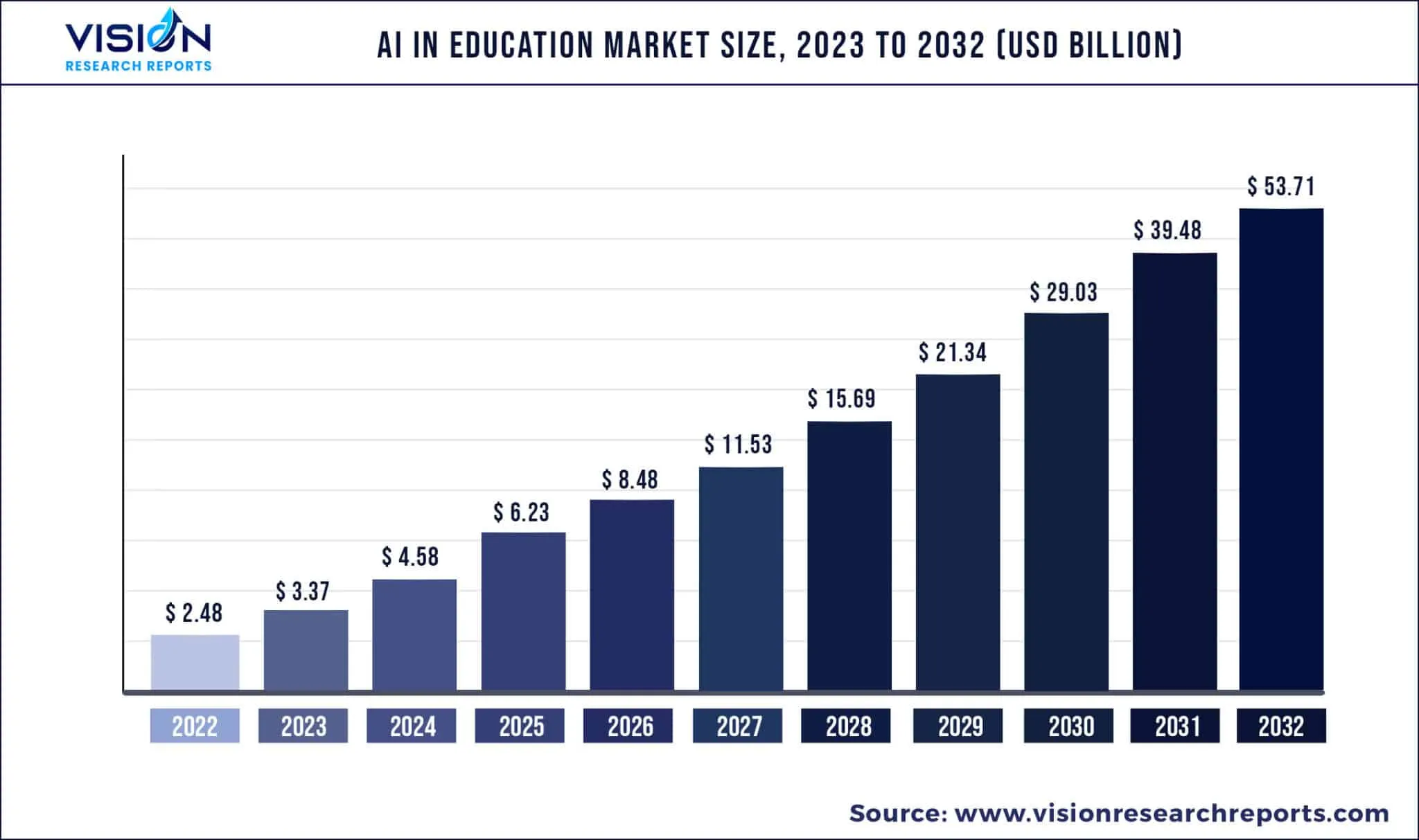
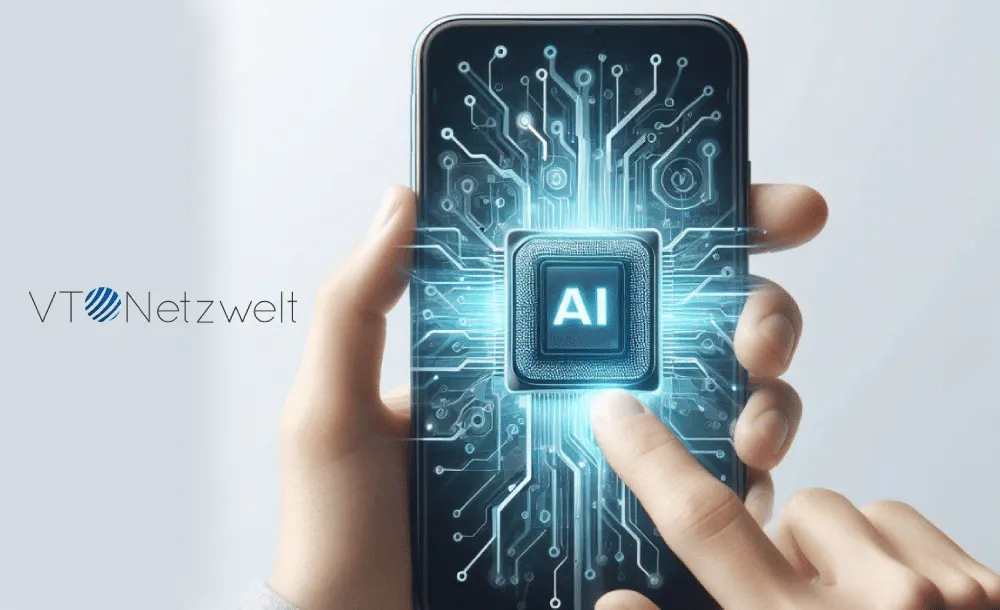


Did you know that AI is rapidly growing in the mobile industry? By 2027, the worldwide market for mobile apps is projected to reach $673.80 billion.
You are already aware of how AI is transforming mobile application development and making a big impact in the mobile app world.
To help you understand this growth better, have a look at the graph showing the increasing AI market size in the mobile industry. Get ready to learn more about the exciting world of AI in mobile development!

Artificial Intelligence (AI) is a powerful technology that is changing the way we interact with mobile apps. This means that our phones now understand what we need and can help us better.
AI can improve user experience and help developers create better apps. Moreover, it accelerates application development by analyzing data, predicting outcomes, and enhancing app performance, resulting in a more efficient process.
In this blog, we will see how AI is changing mobile application development and making our phones and tablets better to use.
AI technology tailors experiences for each individual based on their preferences and online activities. This helps businesses give customized content and recommendations to users.
In the case of shopping, AI looks at what customers do online, such as what they buy and view. Here, AI suggests products they might like. By using AI to predict what people want, businesses can make shopping experiences more personal.
With AI, businesses can use data about customers to create custom-made marketing messages and offers. By using AI to understand customer preferences, businesses can send targeted messages to improve the effectiveness of marketing campaigns.
AI helps students learn by offering special learning experiences tailored to their needs and how they like to learn. When educators integrate AI into education, students receive customized lessons and feedback tailored to their abilities and interests, ultimately enhancing their learning experience.
In music apps, AI can suggest songs based on what you have listened to before. In shopping apps, AI can recommend products that you might like based on what you have bought in the past. These examples show how AI can make the app experience more tailored and enjoyable for each user.

AI-powered voice assistants and chatbots in mobile apps are helpful friends who can do many things for users. They can give you information, answer your questions, and assist you in completing different kinds of tasks.
When you use voice technology, you can talk to the app instead of typing or tapping on the screen. This makes it simpler for you to interact with the app, especially if using touchscreens is difficult for you. It’s like having a chat with your phone, which can make using apps more accessible and convenient for you.
They are like virtual assistants. They chat with us and help us with tasks to make our experience easier and more user-friendly. They provide interactive support and help, similar to having a chat with a helpful friend.
Voice assistants and chatbots in mobile apps help users by giving them information, answering questions, and helping with tasks. These assistants make apps easier for everyone to use, especially for those who aren’t familiar with technology.
For instance, virtual assistants like Siri and Google Assistant can help users with various tasks using voice commands. Chatbots in customer service apps can provide instant responses to user inquiries, improving user experience and efficiency. These examples showcase how voice technology enhances user interactions and provides valuable assistance in mobile applications.
AI predictive analytics team up to guess what could happen in the future by looking at data. They use smart algorithms to study information and make predictions about upcoming trends and behaviors.
AI data analytics involves using technology to study and understand data. By using smart algorithms, they help businesses and developers make sense of information to improve decision-making.
AI can predict data by analyzing large amounts of information to identify patterns and trends. AI analyzes data to predict future outcomes, helping businesses predict user needs and offer custom-made experiences.
Predictive insights are valuable information gained from analyzing data with AI algorithms. These insights help businesses understand trends, patterns, and user behavior. Allowing them to make informed decisions and provide custom-made experiences in mobile apps.
Predictive analytics plays a key role in enhancing user engagement and app performance. It enhances user engagement and app performance with custom-made recommendations in shopping apps. Moreover, it also uses targeted notifications in fitness apps to motivate users.
Privacy and security in AI refer to keeping personal information safe and protected while using artificial intelligence technology. It involves ensuring that authorized users can securely access and prevent misuse of data.
AI can enhance privacy by helping to secure and manage data more effectively. It can assist in encrypting sensitive information, monitoring for potential breaches, and implementing privacy controls to protect user data.
AI can enhance security by quickly identifying and addressing potential threats and flaws. It can analyze patterns and behaviors to detect suspicious activities, strengthen validation processes, and improve incident response to prevent security breaches.
AI plays a crucial role in boosting cyber security by proactively identifying and mitigating risks. It can identify and address cyber threats quicker and more accurately than traditional methods. This makes it a crucial tool in protecting digital assets and data.
For instance, AI algorithms in mobile apps can detect unusual login attempts or changes in user behavior. AI monitors for unusual activity in apps to keep them safe. It tells developers about possible problems before they get bad.

Automation and efficiency mean using technology to make tasks easier and faster. It involves streamlining processes to save time and effort.
AI will improve efficiency by automating tasks and making processes smoother. It can help reduce manual work, make better decisions, and speed up operations.
AI automation involves using artificial intelligence to perform tasks automatically without human intervention. It enables systems to learn and adapt to user needs, making processes more intelligent and efficient.
AI automation has a significant impact on enhancing productivity and user experience. By automating repetitive tasks and adapting interactions, AI improves efficiency, accuracy, and convenience in mobile apps, creating seamless and tailored experiences for use.
The benefits of automation are significant for both developers and users. Developers can save time and resources by automating routine tasks. This allows them to focus on more strategic aspects of application development. Users benefit from improved experiences, faster responses to queries, and custom-made content recommendations, enhancing overall satisfaction and engagement with the app.
Transparency in AI ethics means being honest and open about how AI works and uses data. It involves being honest about the decisions made by AI systems and how they impact users.
Ethical considerations of AI involve important issues like data privacy and biases in algorithms. Addressing these ethical concerns is essential for ensuring responsible and fair use of AI in mobile apps.
To maintain ethical AI practices in mobile application development, it is essential to prefer user consent and data protection. Developers should regularly check and address algorithm biases. They should also provide mechanisms for users to access and control their data. This will help promote responsible usage of AI.
AI helps students learn better in educational apps by providing custom-made lessons and smart tutoring. For example, AI changes lessons based on how each student is doing, making learning more fun. Virtual classrooms with AI make learning interactive and interesting for students.
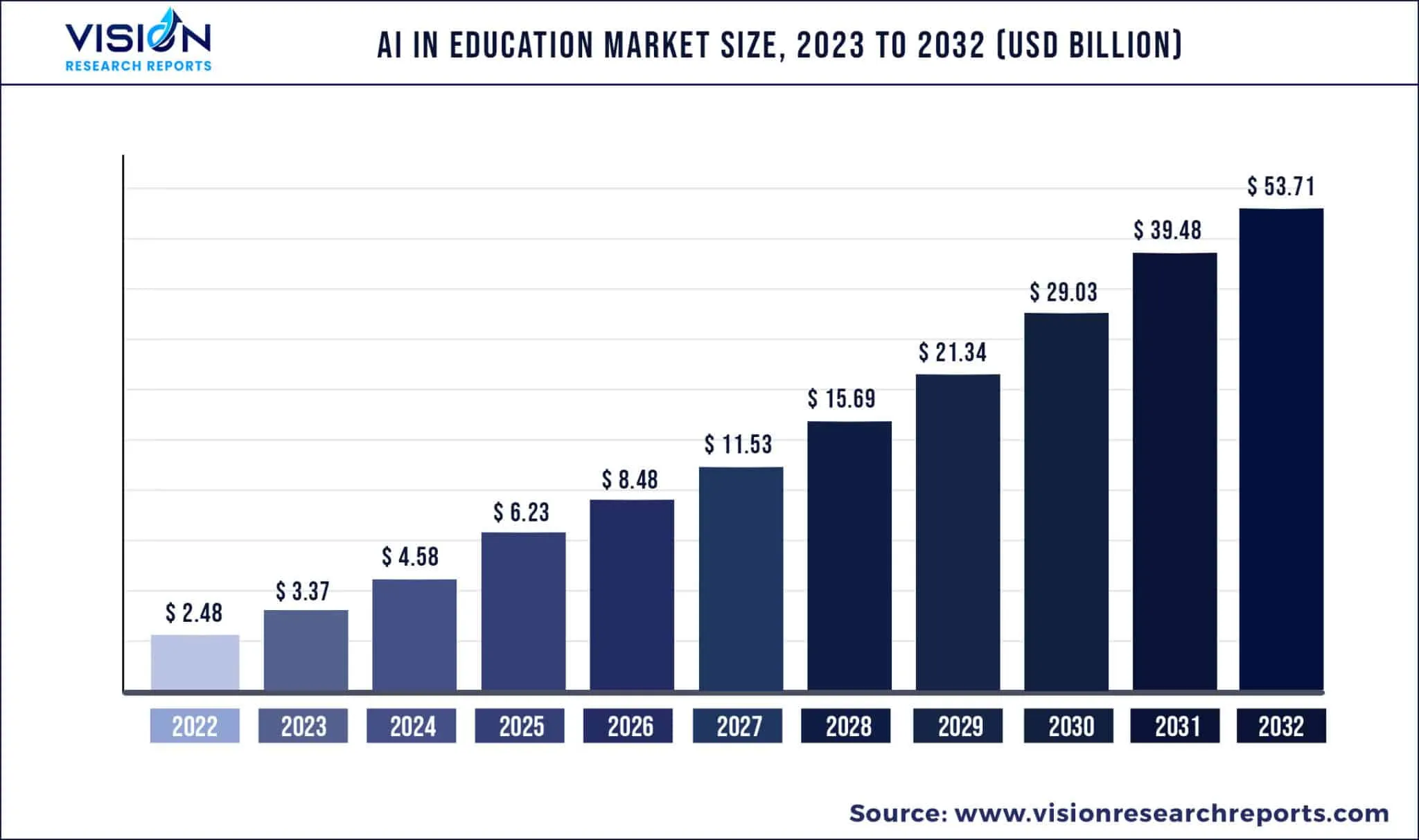
Customized Learning: AI helps students learn in a way that suits them best.
Engagement: AI makes learning more interesting and fun for students.
Efficiency: AI saves time for teachers by doing tasks automatically.
Data Insights: AI looks at student data to give helpful information to teachers.
In hospitals and healthcare, AI technology supports physicians in diagnosing medical conditions, monitoring patient health indicators, and developing custom treatment plans. AI chatbots integrated into healthcare apps provide efficient and accurate responses to patient queries, enhancing access to medical assistance. By leveraging AI algorithms, healthcare providers can streamline processes, improve patient outcomes, and optimize healthcare delivery.
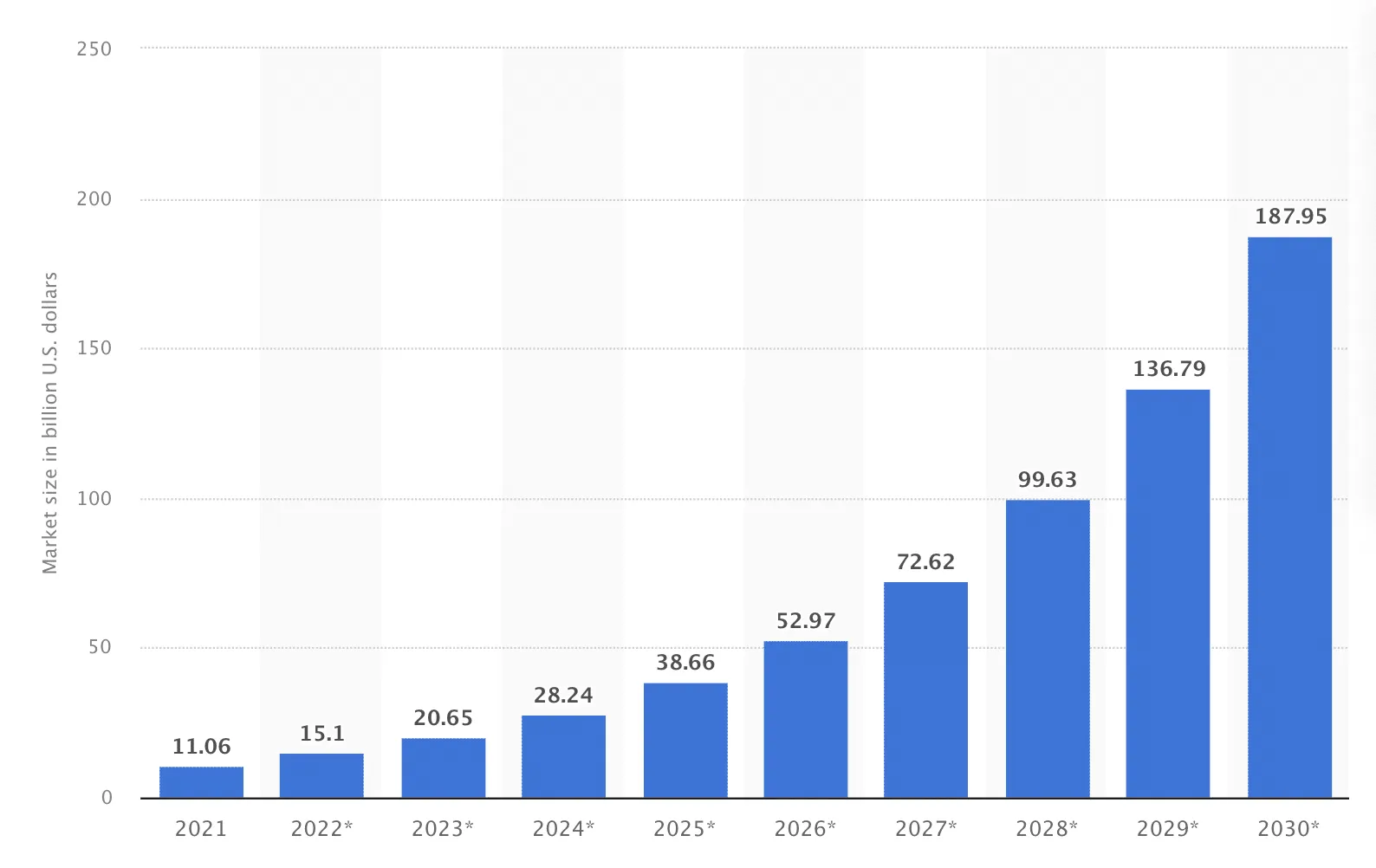
Enhanced Diagnostics: AI assists in early detection and accurate diagnosis of medical conditions.
Customized Treatment:AI enables custom-made treatment plans based on individual patient data and characteristics.
Efficient Patient Monitoring:AI technology facilitates real-time monitoring of patient health metrics for timely interventions.
Improved Patient Engagement:AI chatbots offer instant responses and support to patients, enhancing communication and engagement.
Data Analysis:AI analyzes vast amounts of healthcare data to identify trends, predict outcomes, and improve decision-making.
In online shopping, AI technology is important for making the experience better. AI algorithms suggest products you might like, help you search visually for items, and improve customer service with chatbots. Moreover, AI contributes to efficient inventory management, dynamic pricing strategies, and fraud detection measures, thereby ensuring a secure and customized shopping journey for consumers.
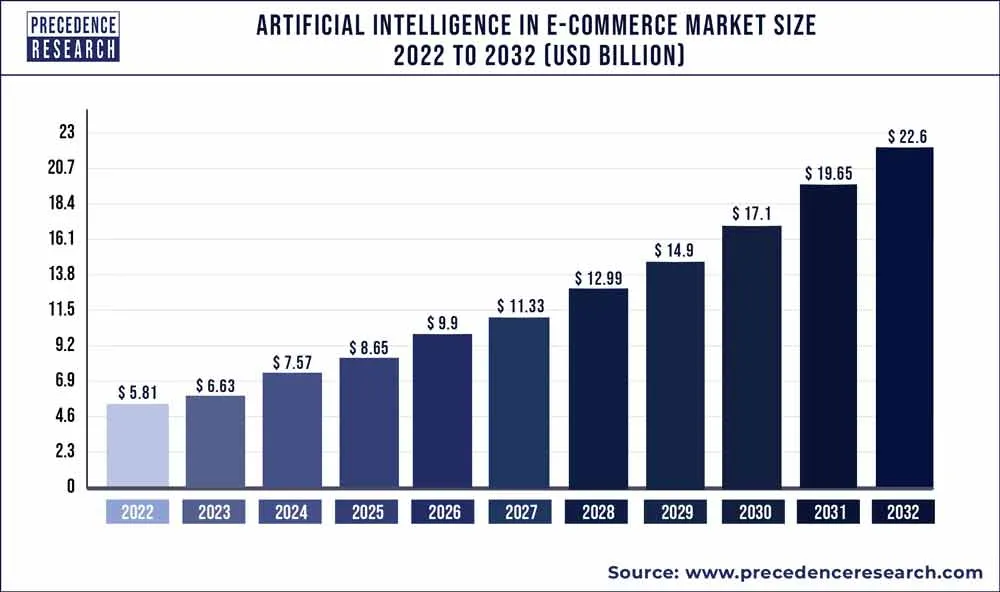
Customized Recommendations:AI suggests customized recommendations of products to individual customer preferences.
Enhanced User Experience:AI-powered visual search and chatbots streamline the shopping process.
Efficient Operations: AI automates inventory management, cost-effectiveness, and fraud detection tasks.
Improved Customer Service:AI chatbots provide instant assistance and support to customers.
Data Analysis:AI analyzes customer behavior and trends to drive customized marketing strategies.
AI technology in finance detects fraudulent activities, assesses risks, and improves customer service. For instance, AI swiftly analyzes financial data to detect potential fraud instances. Banks use AI chatbots to help customers with queries, making banking easier and more efficient.
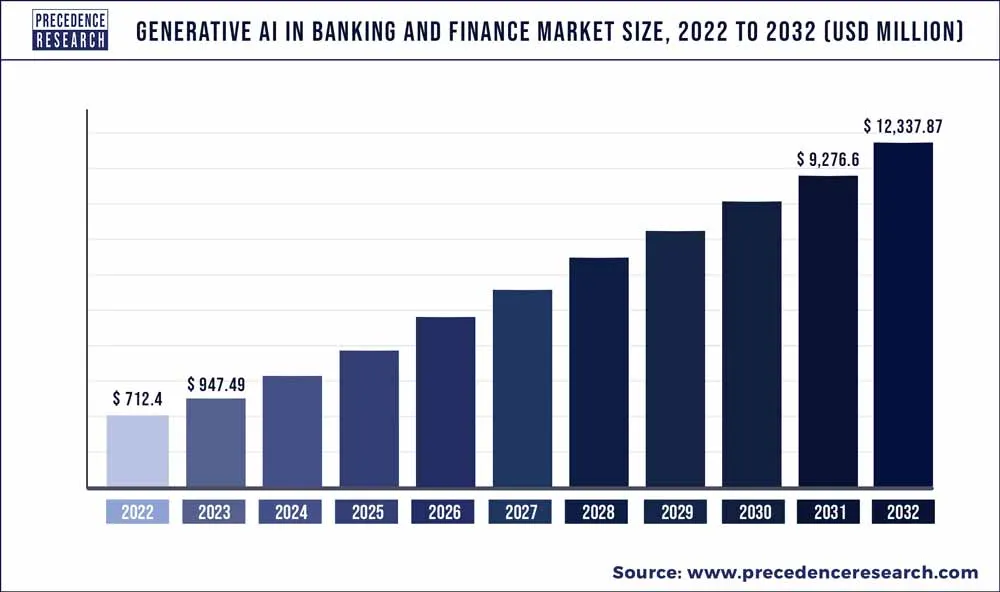
Fraud Detection:AI aids in quickly identifying and preventing fraudulent transactions.
Risk Assessment:AI helps in evaluating risks and making informed financial decisions.
Customer Service:AI chatbots provide efficient and responsive support to banking customers.
Data Analysis:AI analyzes vast amounts of financial data to derive insights and improve decision-making.
Automation:AI automates routine tasks, saving time and reducing errors in financial processes.
In the travel sector, AI technology enhances the booking experience, offers custom-made travel recommendations, and delivers customer support. AI algorithms analyze traveler preferences to suggest optimal travel options and hotels. Additionally, AI chatbots provide immediate assistance with bookings and travel-related inquiries, improving the overall travel experience for customers.
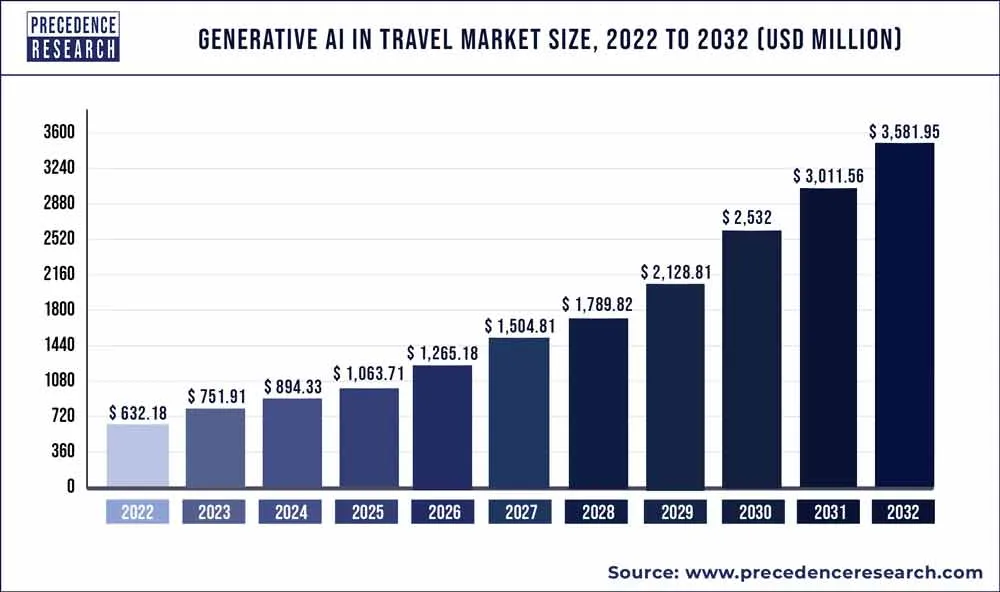
Enhanced Booking Process:AI streamlines the booking process, making it more efficient and convenient for travelers.
Customized Recommendations:AI analyzes traveler preferences to offer custom-made travel suggestions.
Improved Customer Support:AI chatbots provide real-time assistance and support to travelers.
Data Analysis:AI processes vast amounts of travel data to offer optimized travel options.
Automation:AI automates routine tasks in travel management, saving time and enhancing efficiency.
In graphic design, AI technology makes things easier by automating tasks like editing images and designing layouts. Designers leverage AI tools to craft custom graphics and animations, resulting in quicker and more innovative graphic content creation.
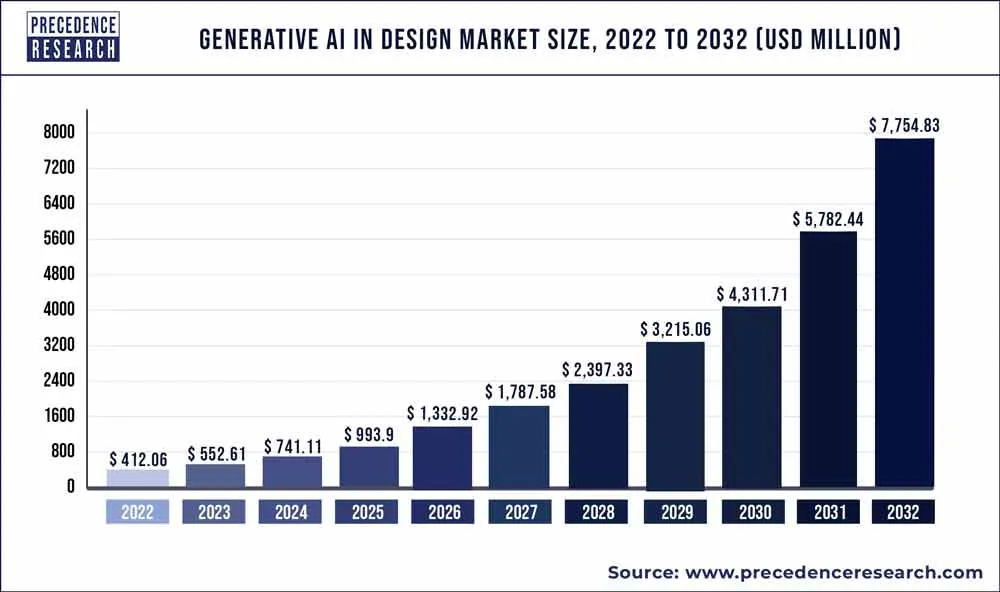
Automated Tasks:AI automates repetitive graphic design tasks, saving time and effort.
Adaptation:AI tools allow for the creation of unique and custom-made graphics.
Increased Efficiency: AI streamlines the design process, making graphic creation faster.
Innovation:AI tools enable designers to explore creative possibilities and produce captivating visuals.
Consistency:AI helps maintain consistency in design elements across different graphics.
In the entertainment industry, AI technology plays a pivotal role by providing content recommendations, crafting custom-made experiences, and elevating production quality. AI algorithms recommend movies and shows based on what users like. AI tools help with editing videos and adding special effects, making entertainment content more appealing.
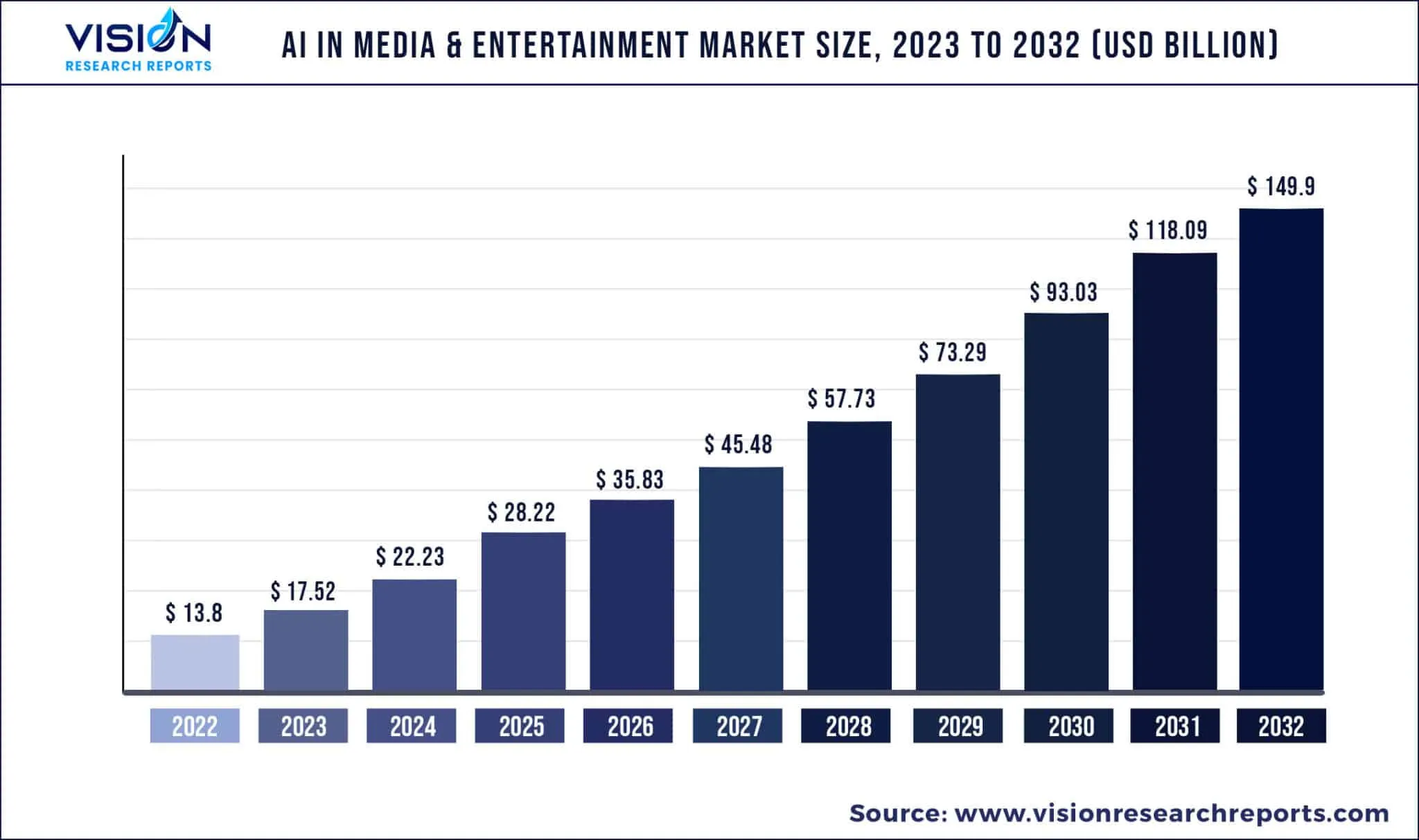
Customized Recommendations:AI suggests content based on individual preferences, enhancing the viewing experience.
Enhanced Production Quality:AI tools streamline video editing processes and add special effects for more engaging content
Improved User Experience: AI creates custom-made experiences that cater to individual tastes, leading to higher viewer satisfaction.
Efficiency:AI automation speeds up production processes, saving time and resources for content creators.
Data Analysis:AI analyzes user behavior to tailor recommendations and improve content relevance.
Having accurate and reliable data for AI systems is essential for making good decisions and achieving trustworthy results. Strong rules and practices are necessary for effective data management and protection. These measures help prevent errors and variations that could affect the performance of AI algorithms.
Protecting user information and respecting privacy are fundamental to maintaining trust and compliance with regulations. Having clear rules and monitoring practices is important to stop wrongful access to sensitive data and avoid data breaches. This helps protect user privacy during the AI integration process.
Addressing potential bias in AI results is essential to ensure fair and equitable outcomes. By considering different viewpoints and establishing specific goals, organizations can reduce biases in algorithms. Following ethical standards promotes transparency and fairness in decision-making with AI technologies.
Developing AI solutions requires specialized expertise and knowledge, presenting challenges for organizations with skill gaps in their workforce. By engaging the right individuals and offering targeted training and development opportunities, organizations can bridge skill gaps and cultivate a competent team. This team will be capable of effectively utilizing AI technologies to promote innovation and drive growth.
The rapid evolution of AI technologies presents opportunities for innovation but also challenges organizations to keep pace with advancements. Encouraging continuous learning and innovation, helps organizations stay updated on the latest trends and developments in AI. Investing in continuous training helps people be flexible and ready to use new AI capabilities well.
AI technology in mobile application development is changing many industries like education, healthcare, and shopping. It’s making user experiences better and encouraging new ideas. Let’s explore how AI is transforming learning, healthcare, personalized shopping, and other areas. Join us on this adventure to learn about the many ways AI is shaping the future of mobile apps.
Discover the power of AI with VT Netzwelt . Our skilled developers can help your business reach new heights through AI implementation. Experience the life-changing power of innovative solutions with VT Netzwelt. Explore our AI Development Services and take your business to the next level!
TensorFlow, developed by Google, is one of the most commonly used AI tools for building mobile apps. This framework offers developers a wide range of libraries, tools, and resources for adding AI features to mobile apps. TensorFlow’s flexibility and robust features make it a popular choice for integrating machine learning functions into mobile app projects. These functions include image recognition, natural language processing, and predictive modeling.
Mobile app developers leverage AI to enhance productivity, improve app performance, and drive innovation. Developers can use AI and machine learning to analyze big data and find patterns. This helps make decisions based on data. AI also enables app developers to implement features like intelligent chatbots, predictive analytics, and recommendation engines, enhancing user interactions and overall app functionality.
While AI has significantly transformed the application development landscape, it is unlikely to replace traditional development methods fully. AI is good at automating tasks and making processes better. However, human creativity and problem-solving skills are essential in application development. It is not a complete substitute for human creativity.
The Facade pattern is a structural design pattern that provides a simplified interface to a complex system of classes, making it easier to use and understand. It is often used to hide the complexity of a system and provide a single entry point for clients to access the system’s functionality.
Are You Prepared for Digital Transformation?
AI Development
From GPT-5.3 to Claude Opus 4.6, February 2026 delivered real-world AI breakthroughs. Catch up on the latest AI news and shifts redefining tech.
AI Development
Latest tech and AI updates from January 2026. See how CES 2026, enterprise adoption, and accountability are shaping real-world AI use.
AI Development
Discover real digital transformation examples from leading brands and learn how to choose the right digital transformation company in USA..